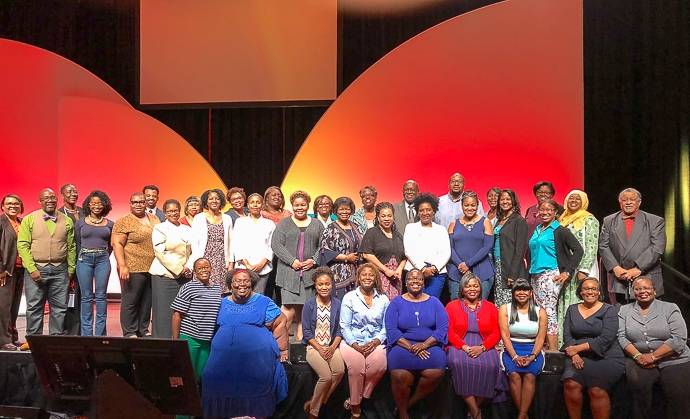African American Medical Librarians Alliance (AAMLA) SIG: Activities at MLA’18

The African American Medical Librarian’s Alliance (AAMLA) SIG has a long history of providing leadership and support for minority librarians in MLA, particularly those of African American descent. AAMLA is committed to addressing challenges and issues such as recruitment and retention, and the development of mentoring and leadership opportunities for minority information professionals. The group aims to help all medical information professionals understand and appreciate the dynamics of cultural diversity, and also to recognize and address the need for cultural competence in the healthcare environment.
MLA’ 18 Activities:
A virtual business meeting was hosted prior to MLA’18, to allow members who could not attend the conference the opportunity to get live updates on SIG activities and virtually present their conference posters. During the group’s conference meeting, four librarians presented on the history of Historically Black Medical and Veterinary Colleges. Meetings were led by co-conveners Shannon D. Jones, Director of Libraries, Medical University of South Carolina Libraries and Roland B. Welmaker Sr., Manager, Technical Services and Archivist, Morehouse School of Medicine.
AAMLA also sponsored the Special Content Session: Transforming Libraries Using Implicit Bias Training. The featured speaker was Dr. Kimberly L. Reynolds, Assistant Professor of Clinical Pediatrics at the University of Miami Miller School of Medicine; where she conducts training on cultural competence and implicit bias for faculty, staff, residents, and students.
The session provided attendees with an overview of implicit bias, its impact in libraries, in health care, and how it can affect diversity and inclusion. Dr. Reynolds defined implicit bias, which occurs when we have attitudes towards people or associate stereotypes with them without our conscious knowledge. She provided examples of what this can look like in the workplace, and offered strategies that librarians can use to identify and overcome their own biases.

